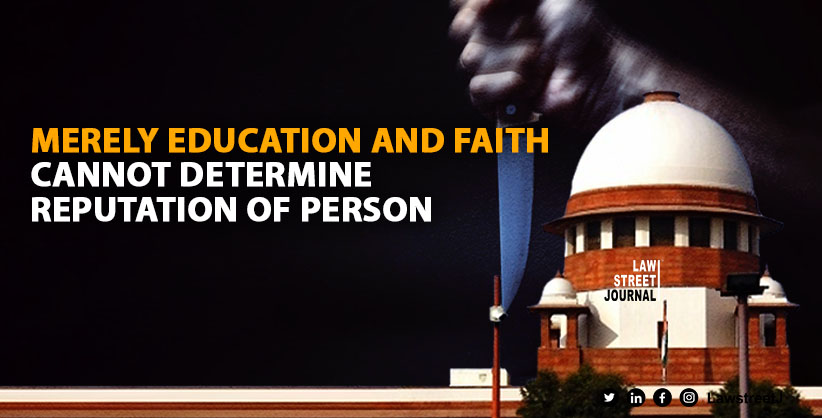NEW DELHI: The Supreme Court has said a court of law cannot declare the reputation of a person based upon its own opinion merely because a person is educated and said to be God-fearing, as that by itself will not create a positive reputation.
A bench of Justices M M Sundresh and J B Pardiwala set free appellant Harvinder Singh alias Bachhu of the charges of murder after finding the prosecution witness, though termed as educated and God fearing, had behaved in a suspicious manner.
The court noted that a reputation has to be seen from the point of view of an identifiable group while character is what a person really is.
It said the High Court has misconstrued the concept of reputation and blindly believed evidence of a witness in reversing the acquittal of the accused by a court in Solan in the case.
The bench said character is to be formed while reputation is to be acquired and character may lead to formation of ones reputation but both are distinct and different.
Reputation thus forms part of internal facts and therefore it is required to be proved in the form of opinion of persons who form it accordingly. When reputation is to be taken as a relevant fact, its evidentiary value becomes restrictive and limited. It is indeed a weak piece of evidence when it becomes relatable to a fact in issue, Justice Sundresh, who authored the judgment for the bench, said.
In its judgement on the appeal, the apex court said, character and reputation do have an element of interconnectivity and reputation is predicated on the general traits of character and in other words, character may be subsumed into reputation.
Courts are not expected to get carried away by the mere background of a person especially while acting as an appellate forum, when his conduct, being a relevant fact, creates serious doubt. In other words, the conduct of a witness under Section 8 of the Evidence Act, is a relevant fact to decide, determine and prove the reputation of a witness, the bench said.
The bench said that when the conduct indicates that it is unnatural from the perspective of normal human behaviour, the so-called reputation takes a back seat.
The apex court said the trial court has given substantial reasons for arriving at its conclusion and one has to keep in mind that it is the prosecution which has to prove the charges beyond reasonable doubt.
Apart from the non-availability of the fingerprint report, the non-examination of the witnesses, as noted by the trial court, would go to the root of the very case of the prosecution, the bench said.
The bench said the high court was persuaded by the homicidal death of the deceased while ignoring multiple findings rendered by the trial court including the fact that the house of the deceased was surrounded by numerous other houses.
"We are constrained to come to the conclusion that the appellant is entitled to the benefit of doubt as the prosecution has not proved its case beyond reasonable doubt. The impugned order passed by the High Court is set aside and resultantly, the order of acquittal passed by the trial court stands restored, the bench said.
According to the prosecution, in incident on June 17, 2003, Singh and other accused (since deceased) broke open the house of the deceased and her husband, due to previous enmity and when she made her entry into the house, she was raped and murdered. The supplementary charge sheet said the murder took place as deceased was resisting rape and tried to attack the accused with a sword.
















